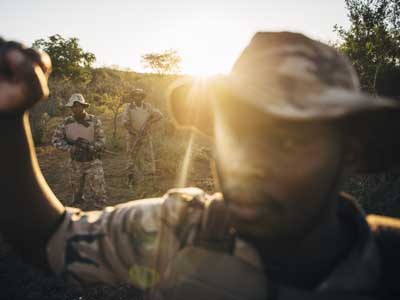Over 100 JoJo tanks have been distributed in the rural village of KwaJobe in northern Zululand, allowing residents to harvest rainwater. This was made possible by the innovative “tree-preneur” programme which aims to uplift poor and vulnerable children and adults by training them to propagate indigenous trees and trade them for goods when they reach a certain height.
Rainwater harvesting tanks were identified as highly desirable items for the Green Future stores where credit for trees is traded for goods, as water supply in rural areas especially is often lacking. The Wildlands Conservation Trust runs this project as part of their Sustainable Communities Programme, and trees grown are planted back into the community or used in other greening initiatives.
A 2500 litre Jojo tank is exchanged for 500 trees grown. JoJo Tanks South Africa began supporting the project last year by donating a tank for each one purchased by Wildlands for the Green Futures stores. Wildlands depends on donations such as these to provide products for trade to the tree-preneurs, many of whom are unemployed and depend on the project for their livelihood.
Khanyisile Mafuleka is fifty two years old and provides for her five children as none of them have work. She grows indigenous trees from seed and has traded them back for goods such as groceries, clothing, bicycles and now her own Jojo tank. Mrs Mafuleka said “I’m so happy that now I’ve got a JoJo tank because of trees, this project is really helpful to my life.”
The provision of storage for water that can be used for drinking and cooking has a significant impact in an area like KwaJobe, as people are dependent on water from Muzi Pan, a few kilometres’ walk for most of the villagers. Cattle graze and drink on the banks of the pan making the water unsuitable for drinking.
Rod Cairns, managing director of JoJo Tanks, said: “We are delighted to be partnering with Wildlands (through Indigenous Trees for Life) for a second year to provide JoJo water tanks to tree-preneurs. At JoJo we are passionate about the role we should play in conserving our planet’s limited resources. Our association with Wildlands gives us an excellent opportunity to make a real difference and to contribute to the global effort to raise awareness of the need to save water.”
“Through the JoJo Tanks partnership, JoJo is able to improve the quality of the lives of many tree-preneurs who now have convenient access to water through rainwater harvesting, for both personal consumption and for watering their trees. The JoJo tanks we donate save women much time and effort, providing a source of water right at their home and they no longer have to walk miles to and from the nearest source of water,” he said.




